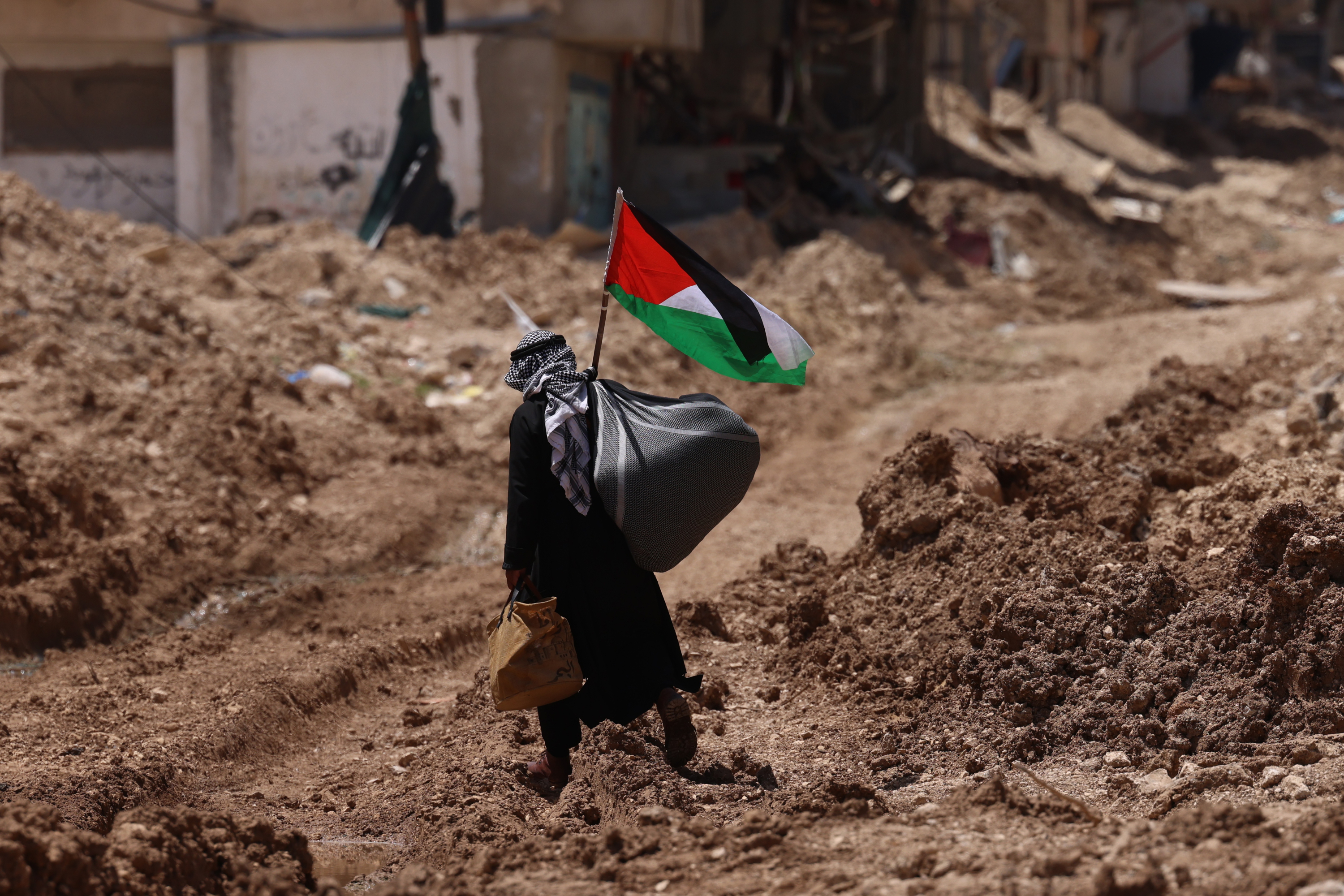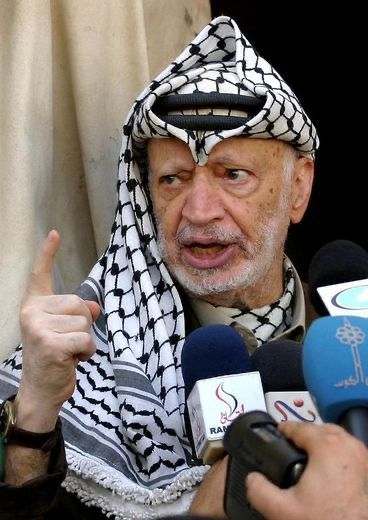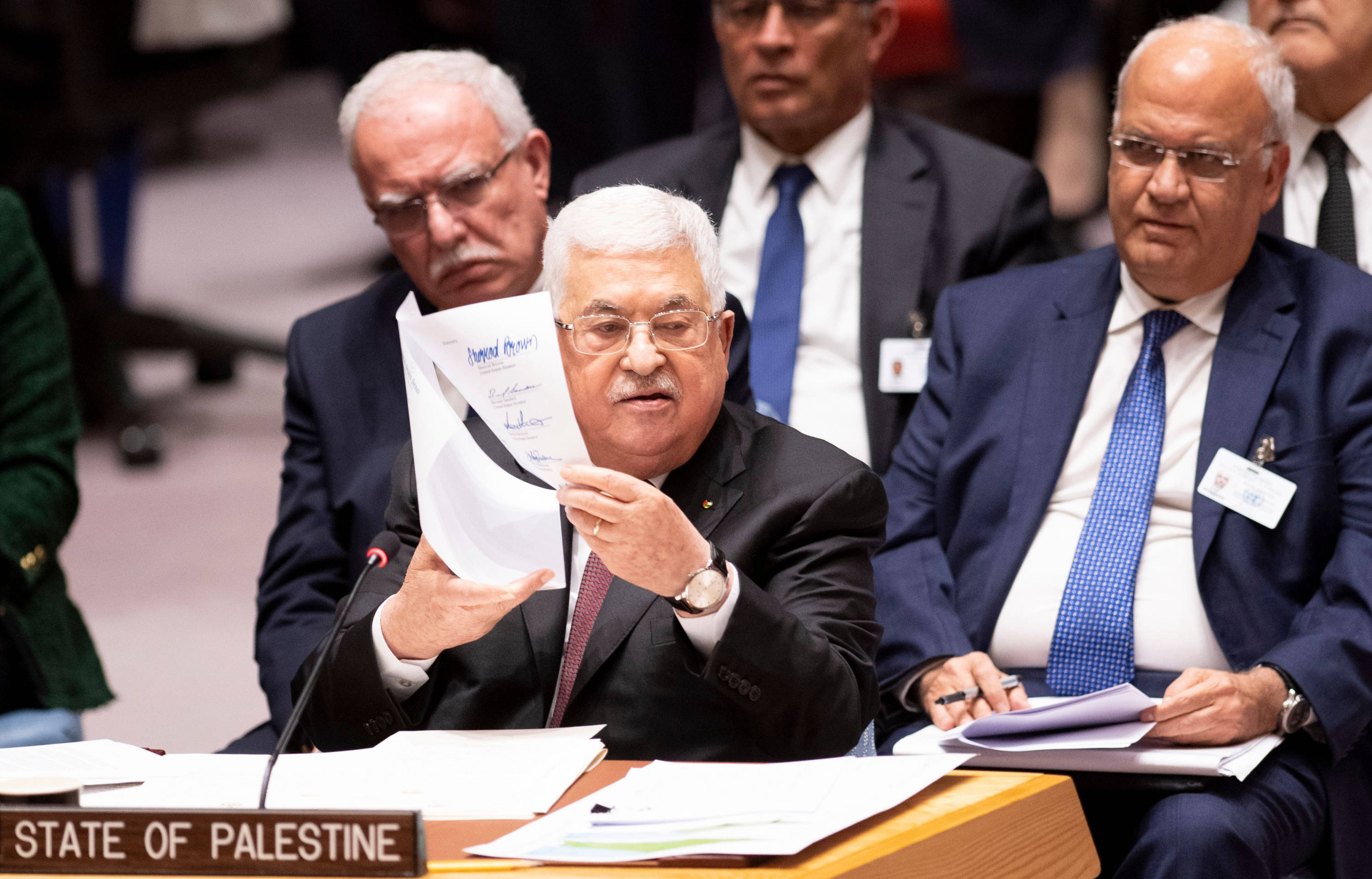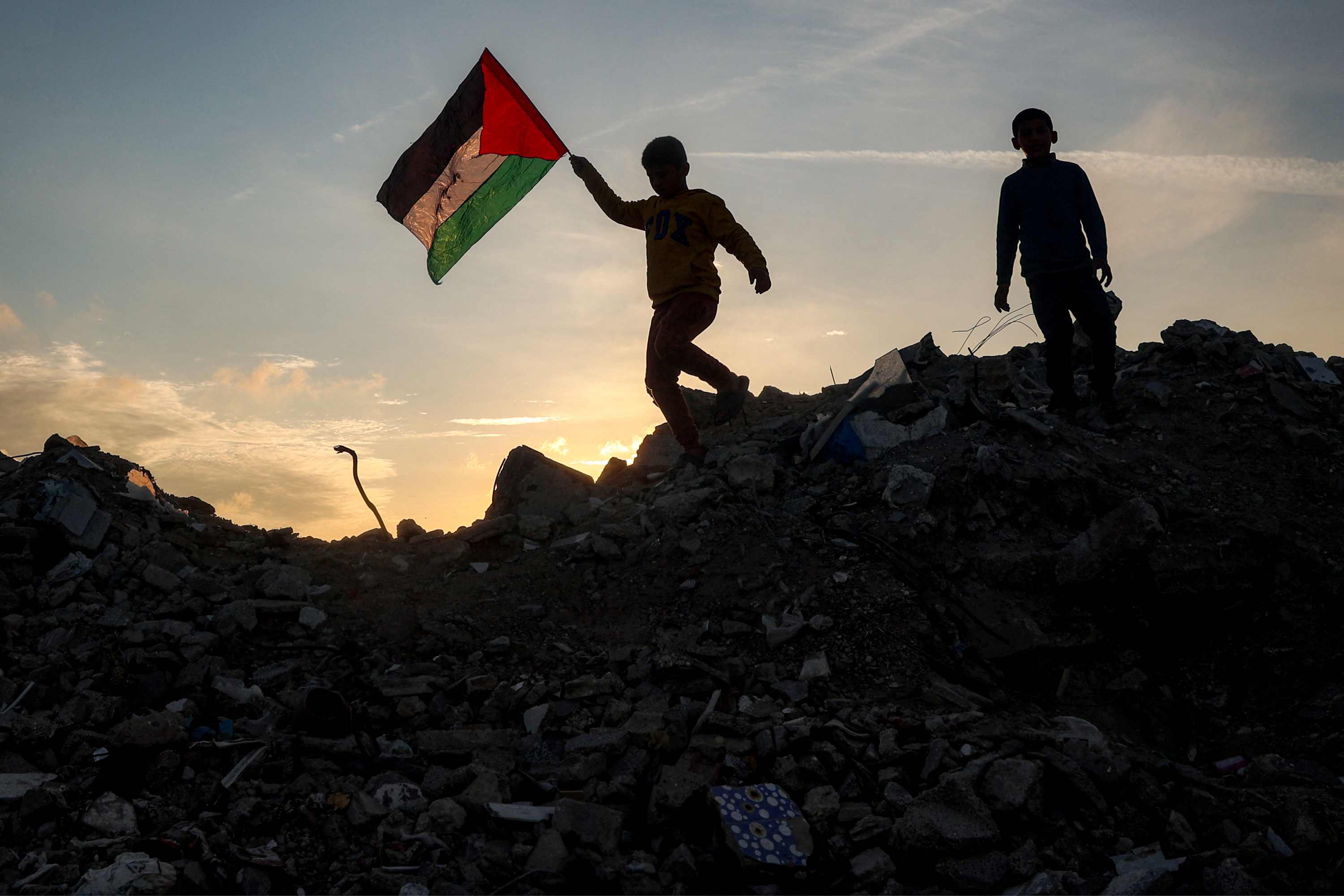Which countries recognize and will recognize the State of Palestine at the UN General Assembly in September? Australia is the latest to announce it.

Three-quarters of UN member states recognize the Palestinian state proclaimed by exiled leaders more than 35 years ago, a diplomatic move that more than ten countries have joined since the start of the war in Gaza.

A Palestinian walks past the main entrance to the Tulkarem refugee camp in the West Bank. Photo: EFE
According to AFP 's count and verification, at least 145 of the 193 UN member states recognize or intend to recognize the Palestinian state, including France and Canada, which announced their intention to do so in September at the organization's General Assembly in New York.
Australia will also recognize the State of Palestine during the United Nations General Assembly. Australian Prime Minister Anthony Albanese announced this on Monday, August 11, with the following message: " The two-state solution is humanity's best hope for breaking the cycle of violence in the Middle East and ending the conflict, suffering, and famine in Gaza," he said during a press conference broadcast on the public broadcaster ABC .
The United Kingdom also announced that it will recognize the Palestinian state unless Israel makes certain commitments.
Most countries in Western Europe and North America, almost all countries in Oceania, Japan and South Korea, as well as a handful of countries in Latin America and Africa, do not recognize the State of Palestine.
Here we explain three key steps in this process.
Arafat proclaimed a Palestinian state in 1988 On November 15, 1988, during the first intifada (uprising) , Palestinian leader Yasser Arafat unilaterally proclaimed an independent Palestinian state with Jerusalem as its capital.
Arafat made the announcement in Algiers during a meeting of the Palestinian National Council in exile, which adopted as its goal a two-state solution: one Israeli and one Palestinian.

Palestinian leader Yasser Arafat. Photo: @HenMazzig/X
A few minutes later, Algeria became the first country to officially recognize the Palestinian state.
Within a few weeks, some 40 countries, including China, India, Turkey, and most Arab states, adopted this policy. Shortly afterward, they were followed by almost all African countries and Soviet bloc nations.
Since December 2010, Brazil first, and then Argentina, Bolivia, Ecuador, Chile, Peru, and Uruguay recognized the Palestinian State.
In Latin America, Venezuela, Cuba, Nicaragua, and Costa Rica had already done so, and Colombia , Honduras, and El Salvador also joined, distancing themselves from the United States, Israel's main ally.
2012: One foot in the UN Under the leadership of Mahmoud Abbas , Arafat's successor who died in 2004, the Palestinian Authority launched a diplomatic offensive in international organizations.
UNESCO was the first multilateral UN organization to open its doors to Palestinians in 2011, sparking outrage from Israel and the United States.
In a historic vote in November 2012, the UN General Assembly voted to grant the Palestinians observer state status at the United Nations .
This paved the way for them to join the International Criminal Court (ICC) in 2015 and opened investigations into Israeli military operations in the Palestinian Territories. The United States and Israel denounced this decision.

Palestinian Authority President Mahmoud Abbas during a UN conference. Photo: AFP
The outbreak of war between Israel and the Palestinian movement Hamas in the Gaza Strip, following the Islamist group's attack on Israeli territory on October 7, 2023 , has revived calls for recognition of the Palestinian state.
Armenia and four Caribbean countries (Jamaica, Trinidad and Tobago, Barbados, and the Bahamas) took the step in 2024. Four European countries also did so: Norway, Spain, Ireland, and Slovenia , the last three being members of the EU.
In the European Union, it was a first in ten years. In 2014, Sweden , home to a large number of Palestinians, became the first member of the bloc to recognize a Palestinian state.
Six other European countries had already adopted this policy before joining the EU: Bulgaria, Cyprus, Hungary, Poland, the Czech Republic, and Romania . However, Hungary and the Czech Republic no longer recognize the Palestinian state.

A boy runs with a Palestinian flag over rubble at a displaced persons camp in Gaza. Photo: Eyad BABA / AFP
Several countries have announced their intention to recognize the Palestinian state, including France, Australia, and Canada, which plan to do so in September at the UN.
The United Kingdom will do so unless Israel agrees not to annex the West Bank and accepts a peace process leading to a two-state solution.
Finland and Portugal also announced in July that they are "willing" or "considering" taking this step.
eltiempo





